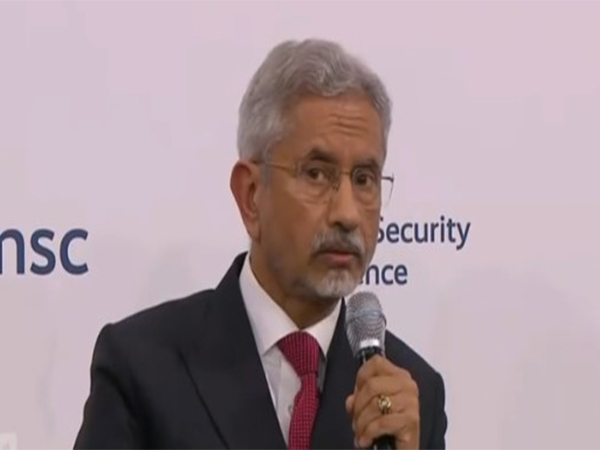External Affairs Minister S. Jaishankar expressed optimism about India’s democratic system and emphasized that it has successfully delivered. Speaking at the Munich Security Conference, he highlighted India’s electoral process, referencing the recent elections in Delhi and the 2024 parliamentary elections.
Participating in a panel discussion on “Live to Vote Another Day: Fortifying Democratic Resilience,” alongside Norway’s Prime Minister Jonas Gahr Støre, U.S. Senator Elissa Slotkin, and Warsaw Mayor Rafał Trzaskowski, Jaishankar disagreed with the notion that democracy is in decline globally.
Addressing concerns about Western democracy, Jaishankar said, “I appear to be an optimist in what seems to be a pessimistic panel, if not room. Before answering, let me raise my index finger—this mark on my nail signifies that I have just voted. We recently held an election in my state. Last year, we had a national election where nearly 700 million out of 900 million eligible voters participated. We count votes in a single day, and once results are announced, they are not disputed.”
Jaishankar pointed out that voter turnout in India has increased by 20 percent over the decades. “I reject the idea that democracy is in crisis worldwide. In India, we are voting well, living well, and remain optimistic about the future of our democracy, which has indeed delivered.”
He further emphasized India’s commitment to democracy, highlighting its large-scale welfare programs. “Senator, you mentioned that democracy doesn’t put food on the table. In my part of the world, it does. Because we are a democratic society, we provide nutrition support to 800 million people, ensuring their health and well-being,” he stated. He urged a nuanced perspective, acknowledging that while democracy functions effectively in some regions, it faces challenges in others.
On global challenges, Jaishankar noted, “There are some issues, but not all of them are universal. Many stem from the globalization model followed over the past 25 to 30 years. Some problems have accumulated, but that doesn’t mean democracy is failing everywhere.”
In a post on X, he wrote, “Started MSC2025 with a panel on ‘Live to Vote Another Day: Fortifying Democratic Resilience.’ Joined PM Jonas Gahr Støre, Elissa Slotkin, and Rafał Trzaskowski. Highlighted India as a democracy that delivers. Differed with prevailing political pessimism. Spoke my mind on foreign interference.”
Discussing democracy in the Global South, Jaishankar asserted that India’s democratic experience is more relevant to many developing nations than Western models. “After independence, India chose democracy because we had a fundamentally consultative and pluralistic society. There was a time when democracy was seen as a Western characteristic. However, many countries in the Global South may find India’s experience more applicable to their societies than Western examples.”
He also stressed that despite economic and social challenges, India has remained committed to democracy, making it unique in its region. “If the West wants democracy to prevail globally, it must also acknowledge and embrace successful democratic models outside its own sphere,” he concluded.
The 61st Munich Security Conference (MSC) is taking place in Munich, Germany, from February 14 to 16, offering a platform for high-level discussions on key foreign and security policy issues.
(ANI)




















